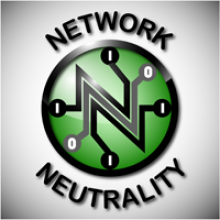Fast, affordable Internet access for all.
AT&T
Content tagged with "AT&T"
AT&T's Lobbying Power
“This information gives us a more complete picture of the vast lobbying and advertising resources AT&T has dedicated to trying to ram through this takeover,” said Harold Feld, legal director of Public Knowledge. “It is even more impressive that while many members of Congress have ignored the facts and are backing this takeover, the Justice Department and the Federal Communications Commission have not. It is clear that the data the DoJ and FCC have compiled on this deal will negate all of the money AT&T has spent to mislead policymakers and the public.”
AT&T Defunds 9-11 To Undercut Competitors
The lawsuit claims that, since at least July 2001, AT&T has filed monthly and annual reports listing fewer business phone lines than they actually provide. Under Tennessee law, phone companies must pay $3 per month per line to pay for 911 access. ... In a March phone service bid proposal for Hamilton County, AT&T stated it would not collect the $3 rate and instead collect $2 per line per month. That allowed the company to underbid the next lowest bidder by 69 cents per line per month, “unlawfully increasing its profits at the expense of revenue to support the critical emergency services that” 911 provided, according to court records.A difference of $.69 may not seem like much, until you consider they may be providing 1,000 lines - which is a difference of $690/month or $8,280/year.
 It is an incredible racket.
It is an incredible racket.Despite Delays, Dunnellon Builds Muni Fiber in Florida
 Building a new network requires a massive up-front capital investment - in this case the city will have spent $4.4 million to connect the first connection. Good thing they aren't all that expensive!
The article identifies two main sources of the delays: difficulty in getting on the poles owned by Progress Energy and long delays in receiving the fiber-optic cable they ordered (stimulus projects have hogged the supply). Rather than taking 12 weeks, they had to wait 30. Delays cause problems:
Building a new network requires a massive up-front capital investment - in this case the city will have spent $4.4 million to connect the first connection. Good thing they aren't all that expensive!
The article identifies two main sources of the delays: difficulty in getting on the poles owned by Progress Energy and long delays in receiving the fiber-optic cable they ordered (stimulus projects have hogged the supply). Rather than taking 12 weeks, they had to wait 30. Delays cause problems:
The installation delay has put the city in a pinch with its lender, Regions Bank.
AT&T Group's Lawsuit in Wisconsin Fails
Wisconsin Independent Telecommunications Systems, operating as Access Wisconsin, sued the UW Board of Regents in July in an effort to stop a $32.3 million fiber optic network to Platteville, Wausau, Superior and the Chippewa Valley region. The lawsuit also named WiscNet, CCI Systems Inc. and the state Department of Transportation. ... The grant — made available through federal stimulus funds — will build high-speed Internet fiber to anchor institutions such as libraries, schools and government, health care and public safety buildings.A press release from the UW-Extension office that organized the Building Community Capacity through Broadband program, funded by the broadband stimulus program, notes:
“This work by the University of Wisconsin-Extension and our many community partners is vital to the future of the Wisconsin economy,” said Ray Cross, chancellor of the University of Wisconsin-Extension and University of Wisconsin Colleges. “I hope that now government, the university, private businesses and communities in every corner of the state will be able to work together to assure Wisconsin is connected to the global economy.”Remember that these lawsuits are rarely intended to be won.
Senate to Vote on Giving Internet Governance to Comcast, AT&T
The truth is that if we want to make sure small businesses can grow with the assistance of broadband, the Internet must remain open.
Riverside: Municipal Wi-Fi is Alive in California
Riverside, California, an innovative city of 300,000 in the eastern part of Los Angeles has been a broadband pioneer even though it sits in the shadow of tech centers like nearby Santa Barbara. Riverside’s accomplishment as a city catching up with the information age was evident when it was selected as one of the top 7 Intelligent Communities Award in 2011 by New York-based Intelligent Community Forum.
“It’s an honor to be selected as one of the top 7 cities in the world. It comes down to a couple factors, what communities are doing with broadband, but... includes digital inclusion, innovation, knowledge workforce (of folks within your community) and marketing advocacy... We rank very high in all those categories.” - City CIO Steve Reneker [Gigabit Nation Radio]
The cornerstone the city’s SmartRiverside initiative is a free public wireless network which covers 78% of the city’s 86 square miles. Established in 2007 by AT&T (which also offers DSL services in Riverside), the maximum speed of the network is 768kbps, which at just under 1Mbps is decent enough to surf the web and check emails. However the road to providing free Internet access and bridging the digital divide wasn’t so easy for Riverside.
The City issued a RFP in 2006 for a provider to deploy a citywide Wi-Fi network, with the goal of making the Internet accessible to users who can’t afford higher cost plans. The City met with respondents and a speed of 512kbps or about half a megabit was initially quoted as an entry-level speed that would complement existing services rather than compete against them. The contract was awarded to AT&T who hired MetroFi to build the network and charge the city a service cost of about $500,000 a year. MetroFi went bankrupt after completing only 25 square miles and Nokia Siemens took over but only completed up to the present level of coverage.
In 2007, the wifi network launched and began bridging the digital divide. Through the City’s digital inclusion efforts, not only were modest-income families able to obtain low cost or free PCs but also have means to use them with an Internet connection.
AT&T Takeover of T-Mobile Will Kill Tens of Thousands of Jobs
Two weeks ago, Deutsche Telekom (DT) Chief Technology Officer Olivier Baujard accidentally spoke truth about T-Mobile to an audience of German investment analysts. After running through the usual company talking points about the effort to sell T-Mobile to AT&T (e.g., it will happen, DoJ is just playing hardball with negotiations, etc.), Baujard said at a public presentation at a Paris broadband conference that: “any rational company had a Plan B and that Deutsche Telekom had other opportunities for its U.S. operations should the U.S. Department of Justice succeed in terminating the deal.” This is vitally important because, after accidentally shooting the “this is the only way to bring 4G to rural America” argument in the foot by accidentally leaking documents proving AT&T could bring 4G to rural America whenever it wants, and T-Mobile killed the ‘this will create jobs’ argument by confirming that it was preparing pink slips for more than 20,000 employees after the acquisition gets approved, the “T-Mobile is a sickly gazelle” argument is about all AT&T and it supporters have left. Unfortunately for AT&T, this is not the first time Deutsche Telekom has screwed up the “sickly gazelle” storyline by revealing inconvenient truths about its other options.







